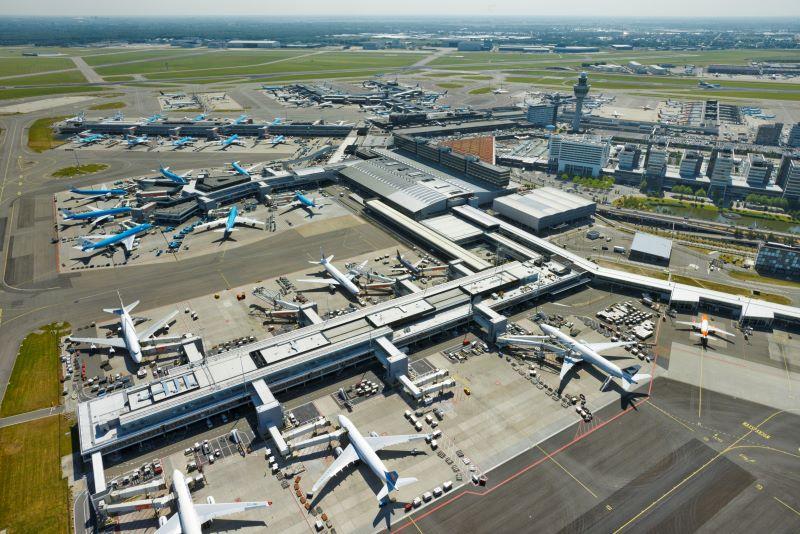
Amsterdam Schiphol
The Dutch government has reversed course on a controversial plan to cut flights at Amsterdam Airport Schiphol, a decision that allows airlines to maintain their planned schedules at the airport during the 2024 summer season.
In the first phase of the Dutch government’s plan, 84 airlines holding historic rights at the airport were required to reduce that portfolio by 3%, representing a reduction of 9,070 slots, 252 of which would come from Delta Air Lines. Dutch airport slot coordinator ANCL said American Airlines and United Airlines would have 22 and 35 fewer slots, respectively, for the summer season. JetBlue Airways, which launched service to Schiphol from New York and Boston in the third quarter, does not have historic slots at the airport, and under the planned cuts, would not receive slots for summer 2024.
The decision not to institute the first phase of cuts appears to have been driven by pressure from the U.S. government and the European Union (EU), both of which expressed concerns about the planned capacity reductions at Schiphol.
Mark Harbers, Minister of Infrastructure and Water Management for The Netherlands, sent a letter to the House of Representatives in the Dutch Parliament stating the U.S. Transportation Department has required Dutch airlines to file their schedules for services to the U.S. Harbers said, “in a second phase, more far-reaching countermeasures can be announced.”
On Nov. 13, the European Commission (EC) sent a letter to the Dutch government conveying “serious concerns” about the failure to follow the Balanced Approach procedure to the implementation of the first phase of cuts on March 31, 2024.
The Balanced Approach is a set of principles adopted by governments globally via the International Civil Aviation Organization (ICAO) Assembly in 2001. Its four principles are a reduction of noise at the source; better land use and planning; improved noise abatement operational procedures; and operational restrictions.
In its letter, the EC stated it “expressively reserves the right to initiate infringement proceedings against the Netherlands ... due to ... non-compliances with European regulations.”
Though a Dutch court initially ruled against the government plan in April, an Amsterdam appeals court overturned that ruling in July, calling the cuts “a temporary approach to a complex problem.” IATA and a coalition of associations and airlines including Delta Air Lines, JetBlue Airways, KLM, and United Airlines are awaiting a ruling from cassation proceedings they initiated, challenging the appeals court ruling.
Harbers said that with the EC’s position that starting the first phase of cuts without following Balanced Approach procedures was not in compliance with European law, the Netherlands Cabinet has decided to suspend those cuts until a ruling has been issued in the cassation proceedings. That decision is not expected before the second quarter of 2024, he said.
Unsurprisingly, airlines are pleased with the Dutch government’s decision not to impose flight limits at Schiphol. “We welcome this outbreak of common sense from the Dutch government,” IATA Director General Willie Walsh said. “We have always maintained that the Balanced Approach offers plenty of opportunity to manage noise issues at Schiphol without cutting capacity.”
JetBlue said the Dutch government has “taken a good first step in agreeing to suspend its plan to cut flight capacity at Amsterdam Schiphol, which was set to begin in the summer 2024 season. We continue to advocate for a long-term resolution that allows for new entrants and competitors in the market like JetBlue.”
Schiphol’s largest operator KLM said the moves by the Dutch government are an important step to prevent retaliation.





